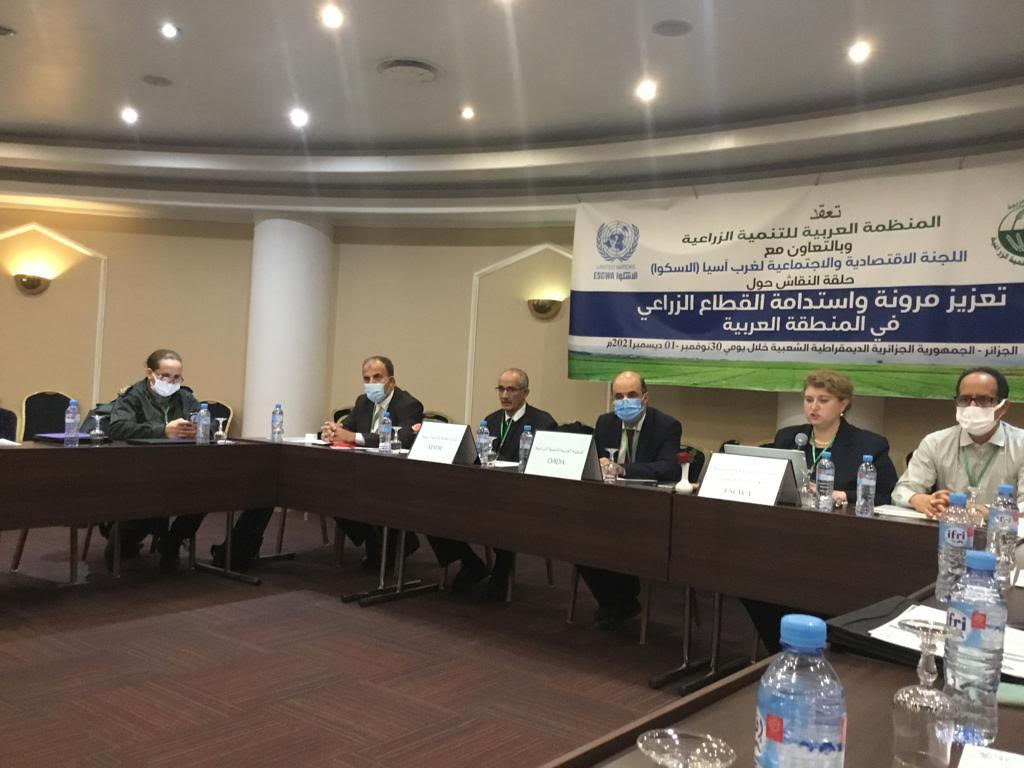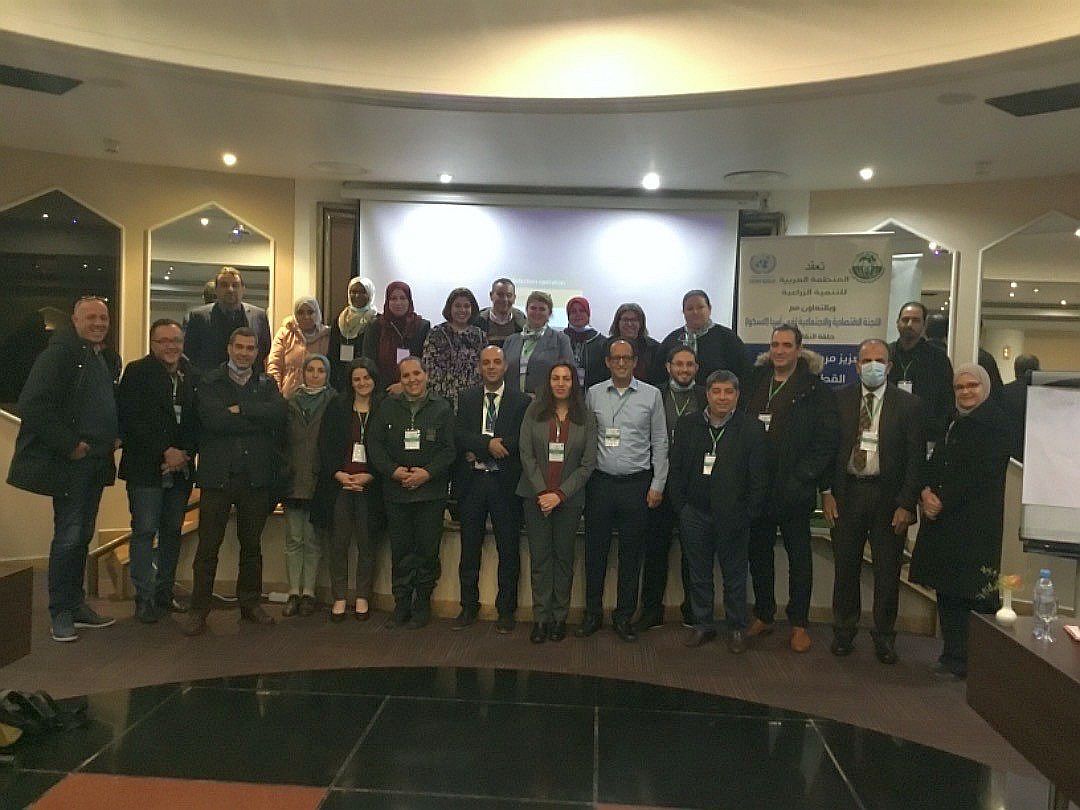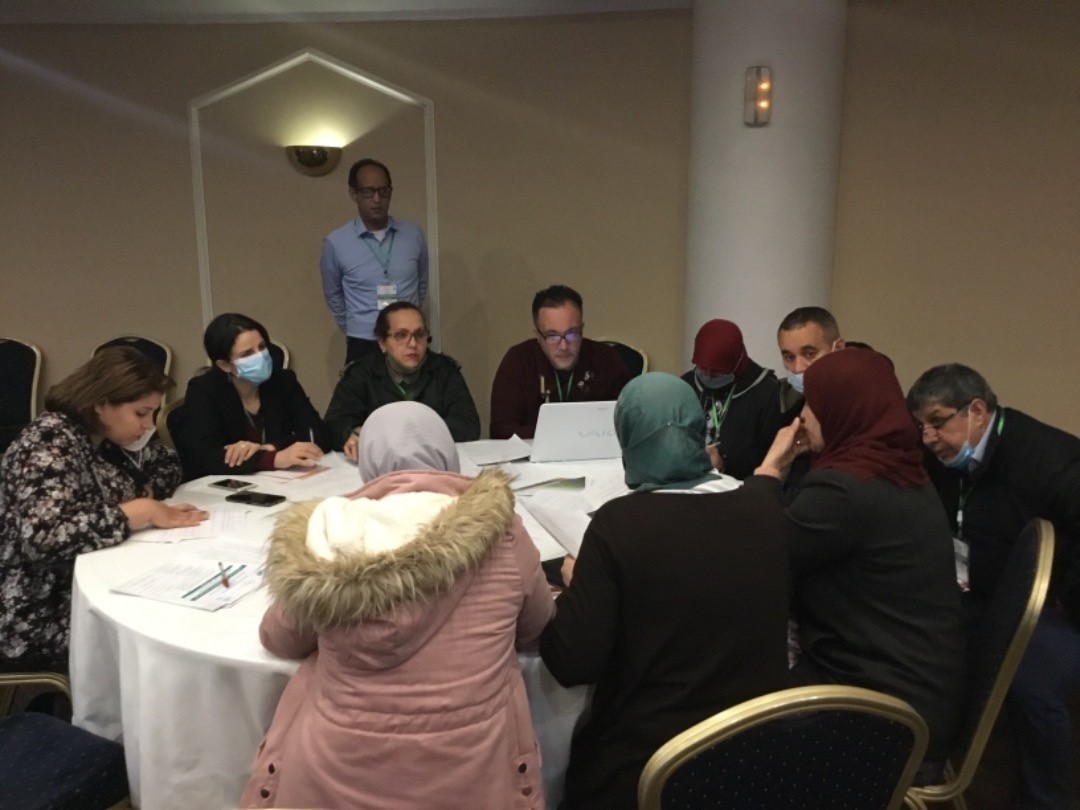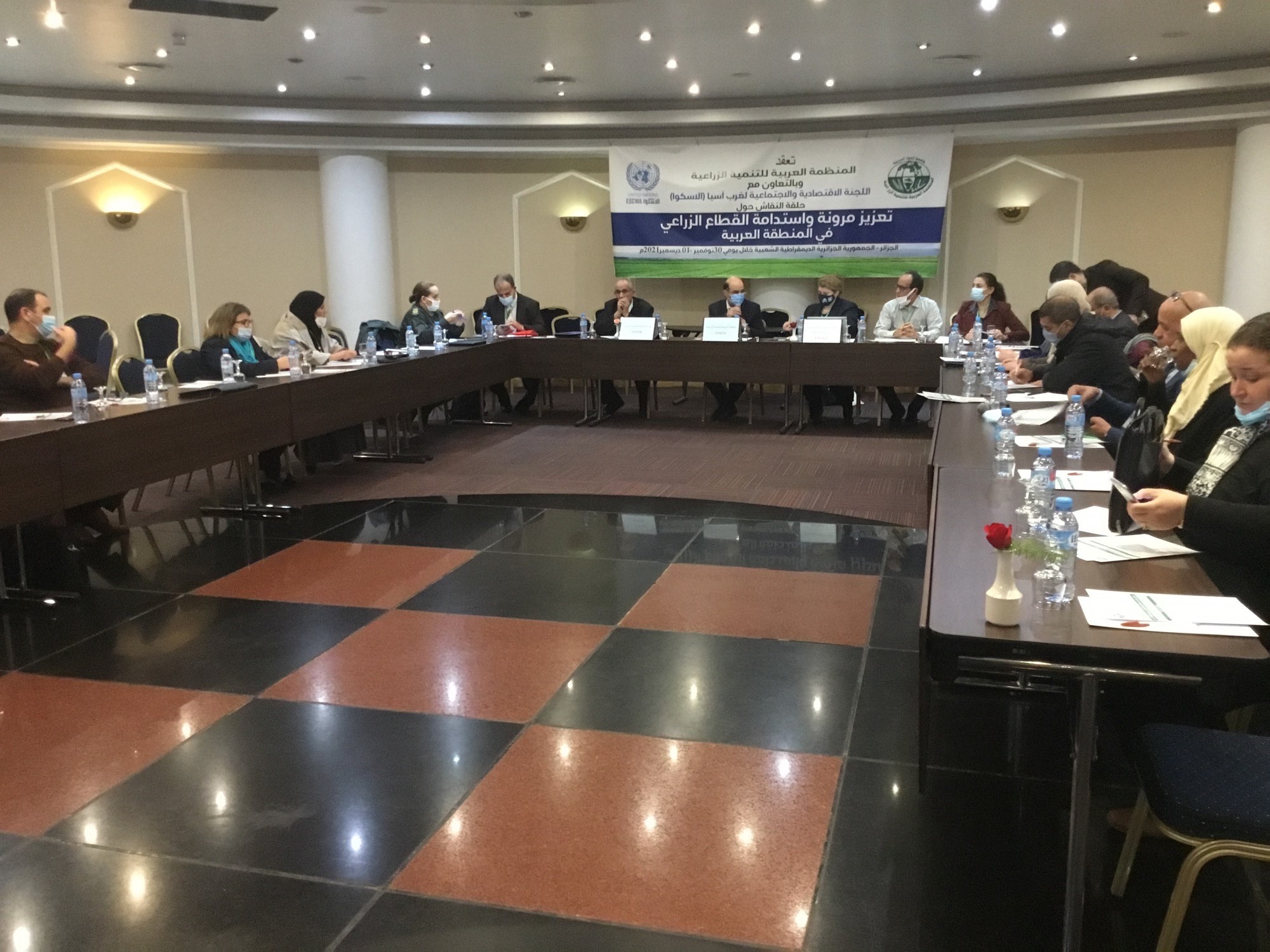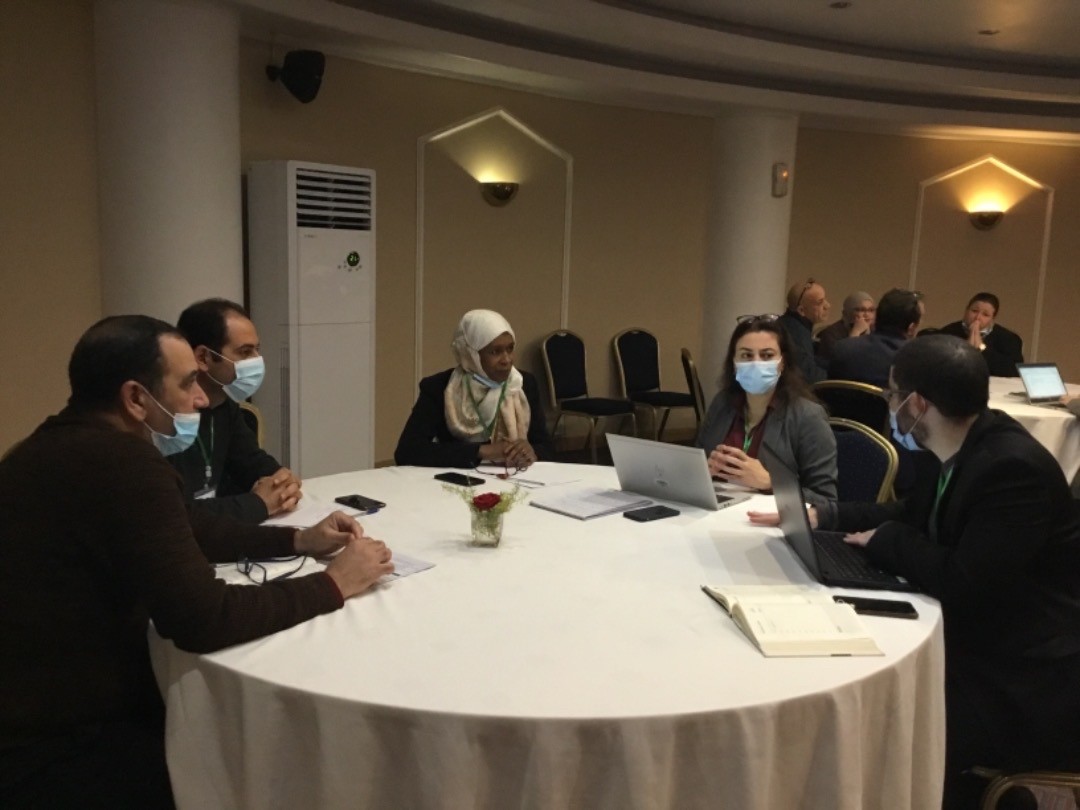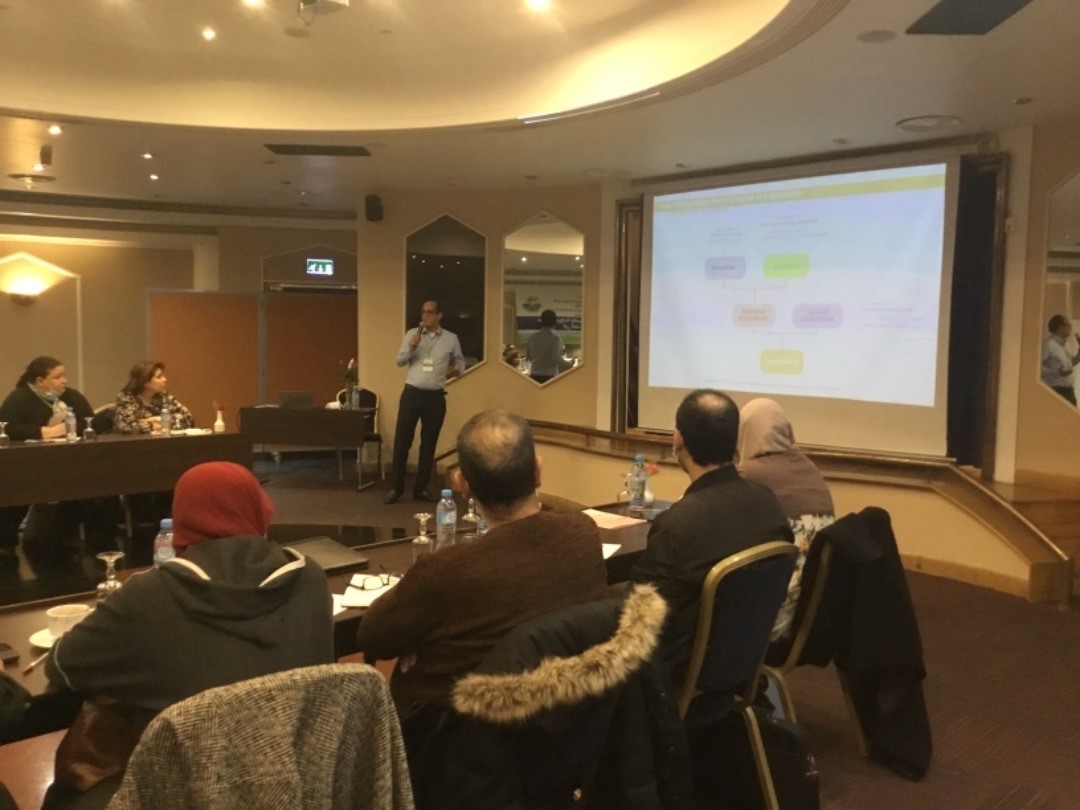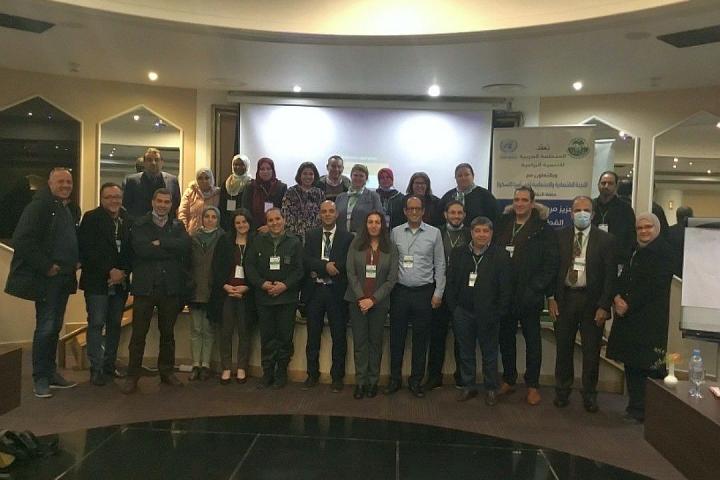The national consultation session aimed at identifying ways of enhancing the agricultural sector’s resilience and sustainability and the resilience of watersheds in Algeria in the face of climate change, the unsustainable use of natural resources and the COVID-19 pandemic. Main key messages that resulted from the consultation session included:
- Expanding the use of water harvesting and continuing to introduce modern irrigation systems to maximize benefits and reduce water losses.
- Using improved seeds that are resistant to drought and heat.
- Supporting and increasing investment in strategic crops, especially cereals, with the aim of reducing their import bill and achieving a minimum level of self-sufficiency in those crops.
- Supporting the adoption and research on smart farming techniques to enhance resilience against the negative effects of climate change.
- Developing industrial crops through integrated valorisation, especially in the fields of oil production, peanuts, soy, sugar and sugar beets.
- Improving livelihoods conditions in mountainous, steppe, pastoral and desert rural areas and creating jobs in those areas.
- Preserving and sustainably exploiting natural resources.
- Providing facilities and support to farmers, especially in the field of microfinance, through the introduction of micro-loans and the revival of social coverage for farmers
- Supporting research, training and guidance in the agricultural field to contribute to the introduction of modern technologies in agriculture and supporting and promoting innovation in agricultural fields and introducing agricultural products capable of adapting to current and future climate changes.
- Reclaiming degraded agricultural lands to improve their productive capacities as well as lands prone to desertification by restoring the vegetation cover
- Effectively combatting the spread of forest fires (implementing the fire management plan) and promoting the role of forests as a tool for improving water quality
- Reviewing and updating agricultural production strategies
- Raising awareness of consumers and reinforcing the culture of rational consumption of agricultural products
- Redeveloping model farms close to urban centres and giving women and the youth the right to exploit them
- Reclaiming badly exploited farms and assigning them to new individuals who can better manage them with appropriate selection criteria
- Providing support and concessional financing to small farmers, especially youth and women.
